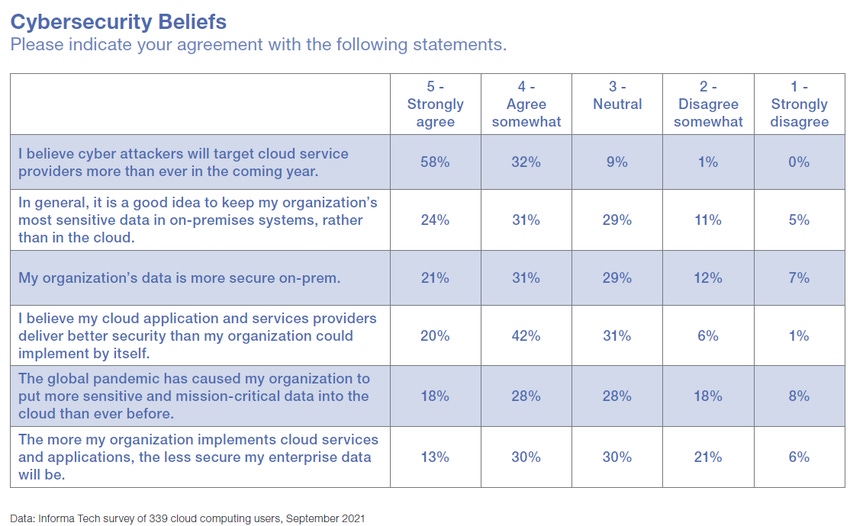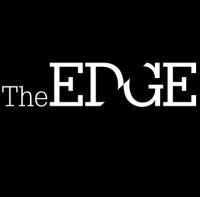
Cybersecurity In-Depth: Digging into data about the latest attacks, threats, and trends using charts and tables.
While opinions about the trustworthiness of the cloud are split, everyone believes that's where hackers will focus their efforts.

Businesses are moving to cloud services more and more. Securing and maintaining on-premises resources is fraught. And yet most IT professionals still see on-prem as safer than the cloud for data storage.
In InformationWeek's recent cloud security report, 52% of IT decision-makers whose company uses cloud services agree that their data is more secure on premises; only 19% disagree with that sentiment. And 55% of respondents prefer to keep sensitive data on-premises, with only 16% disagreeing. Perhaps this concern is driven by the nearly universal belief — 90% agree or strongly agree; only 1% disagree to any degree — that hackers will focus their efforts on cloud services this year. Indeed, we're already seeing new cloud-based vulnerabilities in 2022, and last year revealed a burgeoning market in hacked cloud credentials.
Nonetheless, respondents seem resigned to the move to the cloud, and they see cloud providers as doing a generally decent job of keeping data secure. About half (46%) say their company accelerated its move to cloud services because of the pandemic. Nearly two-thirds (62%) credit cloud services providers with improving security compared to what the company could achieve on its own, with only 7% disagreeing with that sentiment. Of course, because of the shared security responsibility model, both in-house and cloud security teams need to be on their game.
Despite the cloud's benefits, many security pros remain nervous about going all in. When asked whether they believe their enterprise data is more at risk the more their company implements cloud services, answers are split: Forty-three percent agree they were less secure, but a relatively high 27% disagree at least somewhat.
Read more in the full InformationWeek report.
About the Author(s)
You May Also Like
The fuel in the new AI race: Data
April 23, 2024Securing Code in the Age of AI
April 24, 2024Beyond Spam Filters and Firewalls: Preventing Business Email Compromises in the Modern Enterprise
April 30, 2024Key Findings from the State of AppSec Report 2024
May 7, 2024Is AI Identifying Threats to Your Network?
May 14, 2024
Black Hat USA - August 3-8 - Learn More
August 3, 2024Cybersecurity's Hottest New Technologies: What You Need To Know
March 21, 2024

